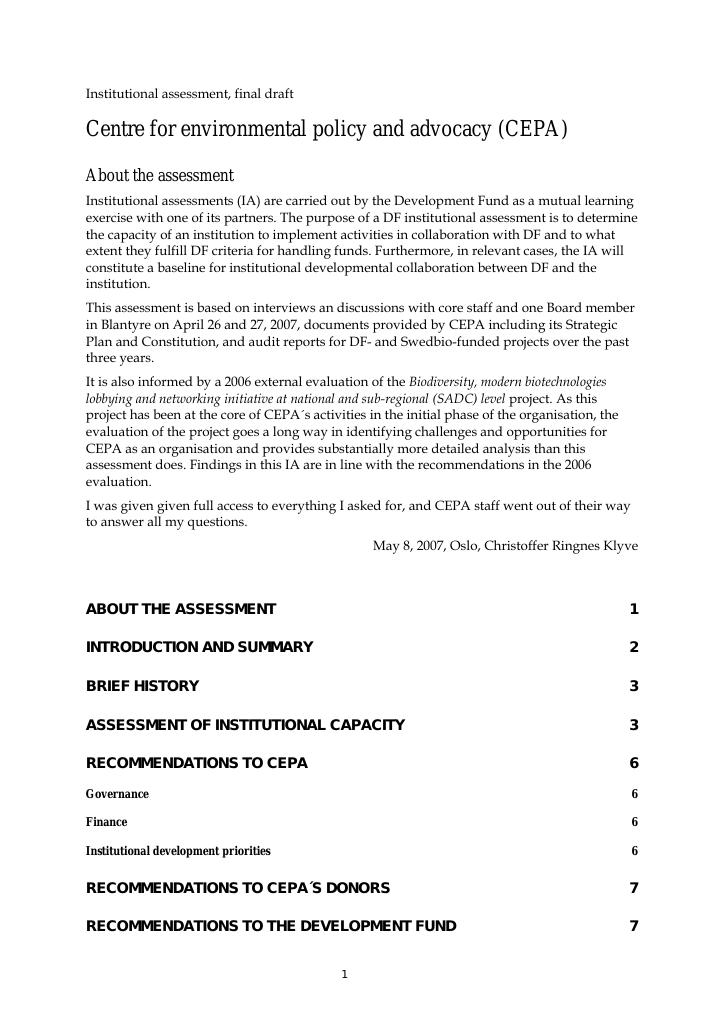Evaluering
Evaluation of Centre for Environmental Policy and Advocacy (CEPA)
Background CEPA was founded in 2002, and it is based in Blantyre, Malawi. Its main purpose is to carry out evidence-based advocacy work on environmental issues.Purpose/objectiveInstitutional assessments (IA) are carried out by the Development Fund (DF) as a mutual learning exercise with one of its partners. The purpose of a DF institutional assessment is to determine the capacity of an institution to implement activities in collaboration with DF and to what extent they fulfill DF criteria for handling funds. Furthermore, in relevant cases, the IA will constitute a baseline for institutional developmental collaboration between DF and the institution.MethodologyThe IA was conducted through interviews with staff and board members, a review of financial and institutional documents and a review of project documents, including an earlier evaluation of one of CEPA's core projects that was funded by DF.Key findingsThe main finding of this assessment is that CEPA is a healthy and strong organization, which has achieved impressive results during its short life. There is significant potential in the organization, which is currently not being utilized fully.Recommendations• Governance and functioning of the Board. The Board is currently not providing the type of oversight required of a well-governed organization, and strategic planning and implementation seems to suffer as a result.• Financial management. CEPA does not currently maintain a budget and expenditure report for the organization as a whole, only for projects. While projects are accounted for satisfactorily, having an overall budget and expenditure report is crucial for sound financial management and strategic planning. Comments from the organisation Any evaluation is produced within a very limited framework with regards to the composition of the evaluation team, its time available, its access to information and how it analyses the information received. Furthermore, any social reality can be analysed and presented in many different ways, among which an evaluation represents only one. Hence while this evaluation report may be useful as a tool for general learning, it has limited value as a source of information about the particular projects and partners in question. We urge any reader to consult the partners involved or Development Fund before applying this information in a way that may affect the partners and the project.
